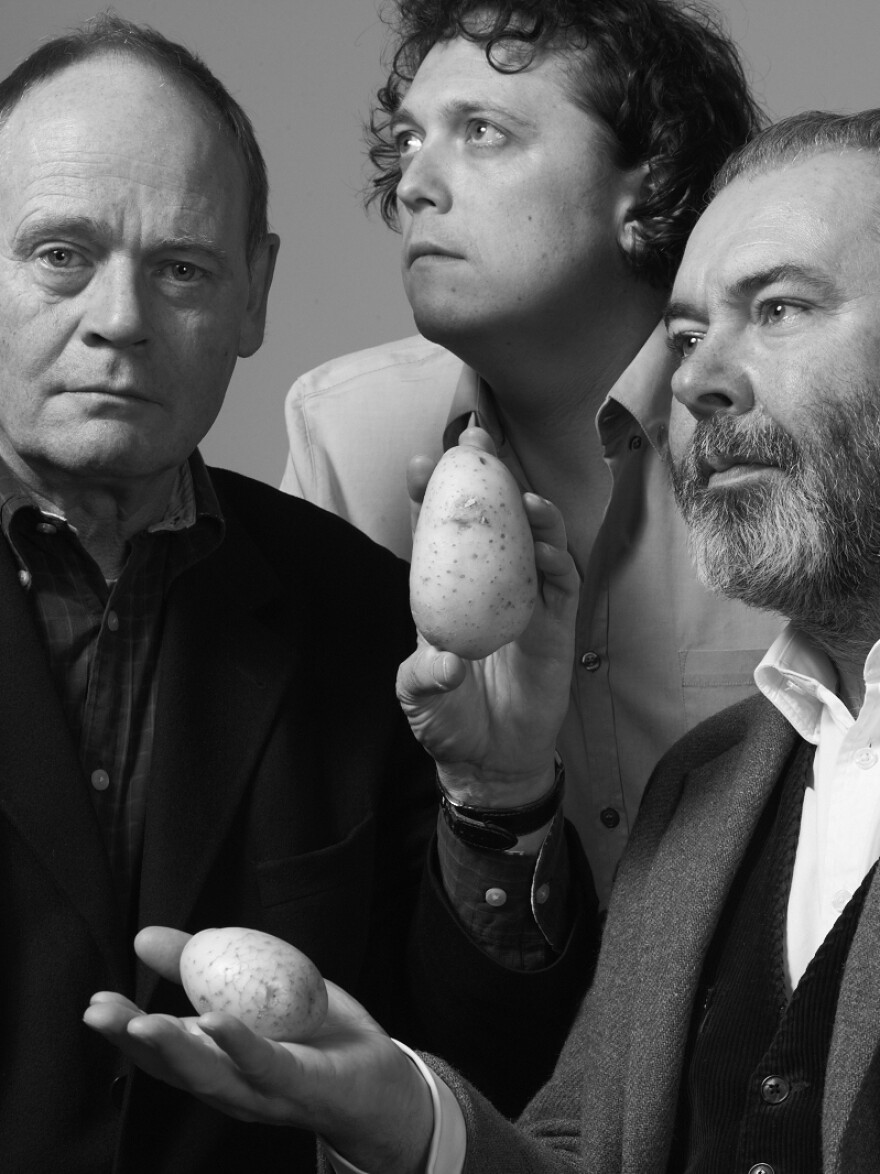Did you know that cows moo in regional accents? Or that 1 in 10 European babies was conceived in an IKEA bed? Or that two-thirds of the people on Earth have never seen snow?
The BBC quiz show QI celebrates these "quite interesting" tidbits of information with obscure questions that reward the players for both correct answers and interesting ones. John Lloyd, one of the creators of the show, teamed up with QI researchers John Mitchinson and James Harkin to compile a treasure trove of factoids in 1,227 Quite Interesting Facts to Blow Your Socks Off.
Lloyd and Mitchinson tell NPR's Scott Simon about the strategy behind the book's layout, which juxtaposes amusing facts (Beyonce's eighth cousin four times removed is Gustav Mahler) with more sobering ones (only half the people who reached America on the Mayflower in 1620 survived to the spring of 1621).

"It's not just a list of trivia," says Mitchinson. "Work is three times more dangerous than war. These things ought to set off little chains in your mind and reflections on what the truth about life really is."
Some facts in the book make a shocking connection: George W. Bush and Saddam Hussein had their shoes hand-made by the same Italian cobbler. Some are ironic: The most-shoplifted book in the United States is the Bible. Others are just as true but pack less of a philosophical punch.
"I must say, there are things in the book that you wonder who spent their time finding these things out," laughs Lloyd. "Giving hamsters Viagra helps them recover from jetlag 50 percent faster. I mean, who put the hamster on a jumbo jet to give it jetlag, and then tried some Viagra on it? Who's wasting public money doing this?"
There are terms you never knew you needed: "sciapodous," for feet so large they could be used as umbrellas, and "gongoozler," one who stares for a long time at things happening on a canal.
The bits of information are presented without commentary or explanation. The founder of Australia was shot to death by a camel, yes, but technically, says Lloyd, "the camel wasn't actually holding the gun with its camel toes."
Some readers have complained that certain facts are not precise. "What we are trying to do is to get people to think and not just necessarily to passively consume things," he says. "Sometimes you have to leave out ... qualifications like 'nearly,' 'almost as many as.' We tend to round up the numbers a little bit, but it's essentially all true."
1,227 Quite Interesting Facts to Blow Your Socks Off has been published in a world already saturated with facts: There is more information in one edition of The New York Times than the average person in 17th-century England would have come across in an entire lifetime — yet we retain very little of it, Lloyd says.
He suggests that if this book were taught in schools, students would learn faster and remember more because it reduces real knowledge to its most interesting elements.
For example, from the first page of the book:
"Now these, left bald, they are astonishing and almost incredible. But they're all sourced," says Lloyd. "We can talk about why the center of the galaxy tastes like raspberries and how they know that. And that would be an amazing way of learning about raspberries, galaxies [and] physics."
Copyright 2023 NPR. To see more, visit https://www.npr.org.


